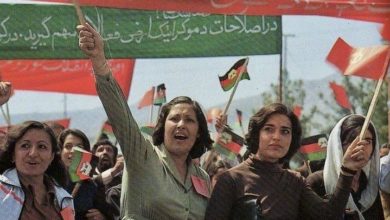The U.S. invasion and teetering occupation of Afghanistan, soon entering its ninth year, is not going well according to U.S. Admiral Mike Mullen, chairman of the Joint Chiefs of Staff. In mid-August, he described the situation as “serious and deteriorating.”
|
General Stanley McChrystal, commander of U.S. and NATO troops in Afghanistan, is reporting similar findings to President Obama. He is widely expected to call for thousands of additional U.S. troops and sharp increases in the numbers of Afghan troops and police.
The presidential election in Afghanistan, which the Obama administration had hoped to tout as a sign of progress, has turned into a fiasco. President Hamid Karzai, whose puppet regime is reviled for rampant corruption, appears to be winning, but the internationally led Electoral Complaints Commission has received over 2,000 complaints of fraud. Karzai needs a 50 percent plus 1 majority to avoid an October runoff against his top challenger, ex-Foreign Minister Abdullah Abdullah.
The election could in no way be considered a step toward greater democracy. Afghanistan is a country at war, occupied by U.S. and NATO colonial forces. The central government is propped up by the Pentagon. U.S. military personnel helped coordinate the election.
President Obama, who eagerly claimed ownership of the war on Afghanistan, calling it a “war of necessity,” has already committed an additional 21,000 U.S. troops to the occupation. That escalation brings the total number of U.S. forces to approximately 62,000. Four thousand additional troops from the 82nd Airborne Division will be sent in September to train Afghan soldiers. This is in addition to private U.S.-paid military contractors in Afghanistan, which were estimated at 130,000 to 180,000 in mid-2007. In addition, Obama has authorized predator drone attacks on Pakistan—killing civilians, expanding the violence, and destabilizing that country.
Afghan resistance fighters, who took a wait-and-see attitude, avoiding direct combat as 4,000 U.S. troops surged into the Helmand province in southern Afghanistan in early July, have fought back with improvised explosive devices, dramatically increasing foreign casualties. As of press time, more than 300 foreign troops had already been killed in Afghanistan in 2009, making it the deadliest year for the occupying foreign armies, with four months to go for the body count to further rise. During August, 47 U.S. troops were killed, making it the deadliest month of the entire eight-year-long war for the United States.
The administration, well aware of the heavy political costs they will incur as more troops return home in body bags, is looking to increase the use of unmanned predator drones. The fiscal year 2010 budget calls for $3.5 billion to be spent on unmanned aerial vehicles. There are several different UAVs made by defense industry contractors. The Reapers, made by General Atomics Aeronautical Systems, are priced at $10 to $12 million apiece.
Use of Predator drones may minimize U.S. military deaths, but it becomes a vicious Catch-22 for the war effort. Any attempt to lessen civilian support for resistance to the occupation is doomed from the start, when drones have rained death from the sky on entire families, on wedding celebrations and funerals. Hundreds of civilians have been killed in the attacks.
The United States has attempted a bribery campaign to win hearts and minds, paying money from a fund created by Congress, the Commander Emergency Relief Program, which has $250 million allocated this year for southern Afghanistan alone. The United States plans to dole out $2,500 to compensate for each civilian killed. The payment for killing a cow would be roughly equivalent, according to The Washington Post.
The new administration faces increased opposition at home. A Sept. 1 CNN poll found that 57 percent of respondents opposed the war in Afghanistan. That rising tide of opposition is also seen in England, where a survey showed 52 percent calling for immediate withdrawal of British troops.
Scrambling to avoid defeat in Afghanistan, the Pentagon is searching for a strategy that will help maintain U.S. dominance over the country and the region. U.S. workers have nothing to gain from the war on Afghanistan. In the month of October, a wide variety of actions will take place on the 8th Anniversary of the war on Afghanistan as people take to the streets across the United States to oppose the war.





